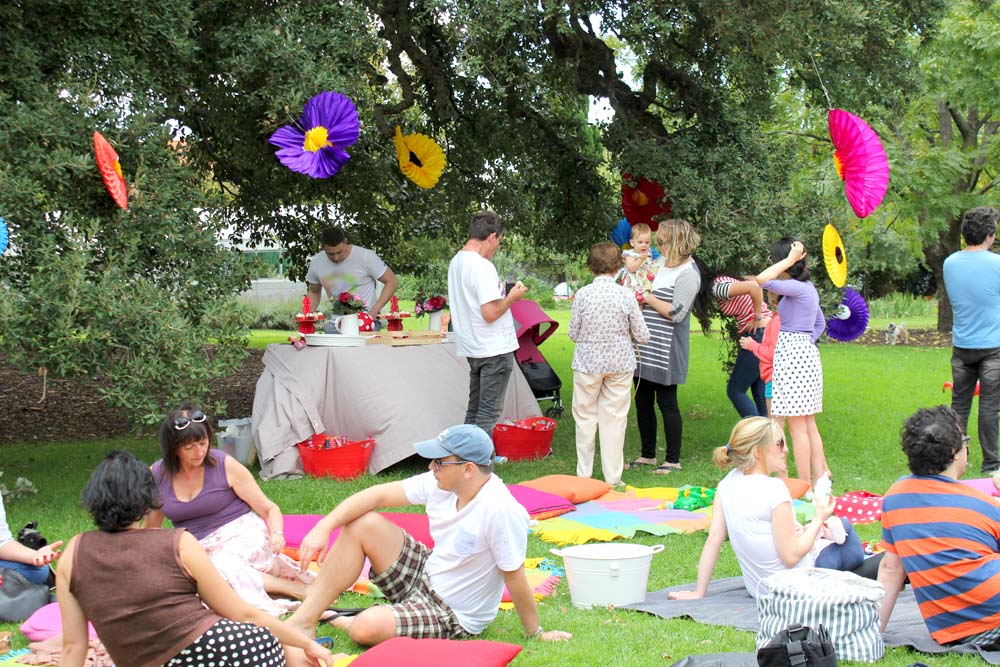Planning a family reunion requires careful consideration of various factors, including the size of the family, interests of the members, and the available budget. As family reunions can differ significantly, it is essential to find the approach that best suits the specific needs and preferences of each family. To help you navigate the planning process, we have consulted our travel experts for their invaluable advice on organizing a memorable family reunion tailored to your unique circumstances.
Getting Started
Undoubtedly, meticulous planning is crucial for the success of any event, and a family reunion is no different. With numerous details to take into account, it’s essential to ensure that you cover all the necessary bases. By carefully considering each aspect of the reunion, you can lay the groundwork for a truly memorable gathering.
Setting a Date
It is advisable to set a date for your family reunion as early as possible to allow ample time for event planning and for your guests to make necessary arrangements. Setting a date up to a year in advance is not too soon to start the process. It is important to consider the schedules of your invitees, especially if families with school-age children are included on your guest list. Planning the reunion around the school calendar can help ensure maximum attendance and participation.
Who to Invite
While creating your invitation list for the family reunion, it is ideal to consider including everyone, if possible. It’s important to remember that sometimes unexpected guests, like a random second cousin you never anticipated, can bring an unexpected spark to the gathering and become the life of the party.
However, if accommodating the entire extended family becomes challenging, it’s essential to establish some parameters. Scott Haltzman, a psychiatrist and author of The Secrets of Happy Families, suggests following a general rule of thumb: Decide on the specific family branches you want to include, whether it’s first cousins, second cousins, or even beyond, and then extend the invitation to everyone falling within that chosen category. By establishing clear parameters, you can ensure a fair and inclusive approach to the invitation process.
How Long It Should Last
When organizing an annual family reunion, it is typically suitable to allocate a weekend as the timeframe for the gathering. However, for reunions that occur less frequently, it is advisable to plan for a few extra days to accommodate those who can stay longer. It is important to consider the duration of the reunion in relation to the available space for accommodation.
Scott Haltzman advises that as the duration of the reunion extends, it becomes essential to have ample space for everyone to spread out comfortably. If the reunion spans a week or longer, it is not recommended to share a small cabin or limited accommodation, as it may lead to feelings of overcrowding and discomfort. Ensuring adequate space and comfortable accommodations contributes to a more enjoyable and harmonious family reunion experience.
How to Organize It
During the early planning stages of your family reunion, it is important to establish clear communication channels to avoid any miscommunication. Designate a point person from each nuclear family to serve as a contact and liaison, ensuring effective coordination and minimizing any crossed wires. This approach helps streamline communication and keeps everyone on the same page.
Before finalizing a specific plan, it is beneficial to conduct an informal survey among the invitees. Gather information on their willingness to contribute financially, their preferred meeting time and location, and their initial reactions to your proposed ideas. This feedback will provide valuable insights and help guide your decision-making process.
Once you have solidified the timeframe, created the invitation list, and gathered preferences from family members, it is time to determine the type of family reunion you wish to host. Our team of travel experts has a wealth of ideas for various reunion possibilities, each with its own advantages and disadvantages. Additionally, they can provide valuable suggestions on how to handle downtime and meals, ensuring that your family reunion is a well-rounded and enjoyable experience for everyone involved.
A Home-Based Reunion
A Home-Based Reunion is perfect for families who value intimacy and prefer a relaxed atmosphere. Hosting the reunion at a family member’s home provides a familiar and comfortable environment for everyone. To plan a successful home-based reunion, consider the following:
- Setting the date and notifying the family well in advance to ensure maximum attendance.
- Collaborating with family members to divide responsibilities such as cooking, cleaning, and organizing activities.
- Creating a schedule of events that includes games, storytelling sessions, and even a talent show.
- Designating areas for children to play, ensuring the safety and entertainment of the younger members.
- Incorporating meaningful traditions or rituals to strengthen family bonds and create a sense of unity.
An All-Inclusive Reunion
An All-Inclusive Reunion is an excellent choice for families who prefer a hassle-free and luxurious experience. By choosing an all-inclusive resort or cruise, families can enjoy a wide range of amenities and activities without the stress of planning. Here are some key considerations:
- Researching and selecting an all-inclusive resort or cruise that caters to families, with facilities and entertainment options suitable for all ages.
- Coordinating with the resort or cruise to secure group rates, special accommodations, and private dining areas for family gatherings.
- Planning a diverse itinerary that includes water sports, guided tours, spa treatments, and other activities that cater to different interests.
- Encouraging family members to participate in organized group activities and games to foster interaction and create shared experiences.
- Designating a dedicated reunion photographer or videographer to capture precious moments throughout the reunion.
A Great-Outdoors Reunion
A Great-Outdoors Reunion is ideal for families who love nature and crave adventure. Gathering in a picturesque outdoor setting allows for both relaxation and thrilling activities. To plan a successful great-outdoors reunion, consider the following:
- Choosing a suitable location such as a national park, campground, or lakeside resort that offers a variety of outdoor activities.
- Organizing hiking trips, nature walks, fishing excursions, and other outdoor adventures that cater to different skill levels and interests.
- Arranging for camping facilities or cabin rentals to provide a communal living experience and a chance to connect with nature.
- Hosting a barbecue or picnic to enjoy delicious meals together amidst the beautiful surroundings.
- Providing opportunities for family members to share their skills and knowledge through workshops or demonstrations, such as outdoor cooking or stargazing.
A Destination Reunion
A Destination Reunion is perfect for families who want to explore new places together and immerse themselves in different cultures. It offers a unique opportunity to combine family bonding with travel adventures. Here are some key considerations:
- Choosing a destination that offers a mix of cultural attractions, historical sites, and leisure activities suitable for all ages.
- Collaborating with a travel agency or tour operator specializing in family reunions to arrange accommodation, transportation, and guided tours.
- Planning a mix of organized group activities and free time for families to explore the destination independently. Incorporating cultural experiences such as cooking classes, local music performances, or visits to museums and landmarks.
- Ensuring there are opportunities for family members to relax and enjoy the destination’s amenities, such as beaches, pools, or spas.








